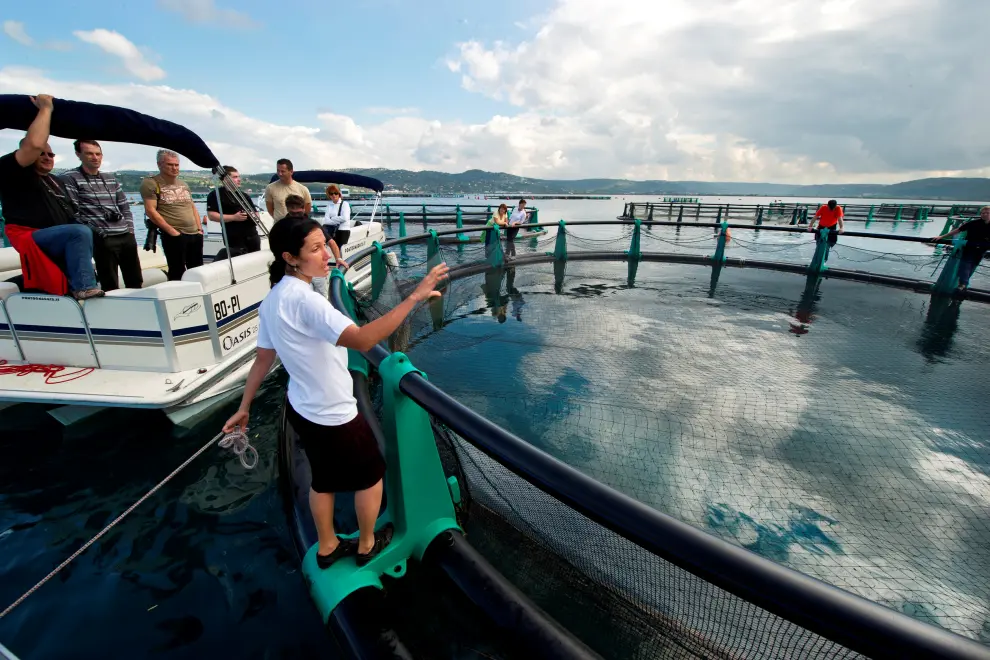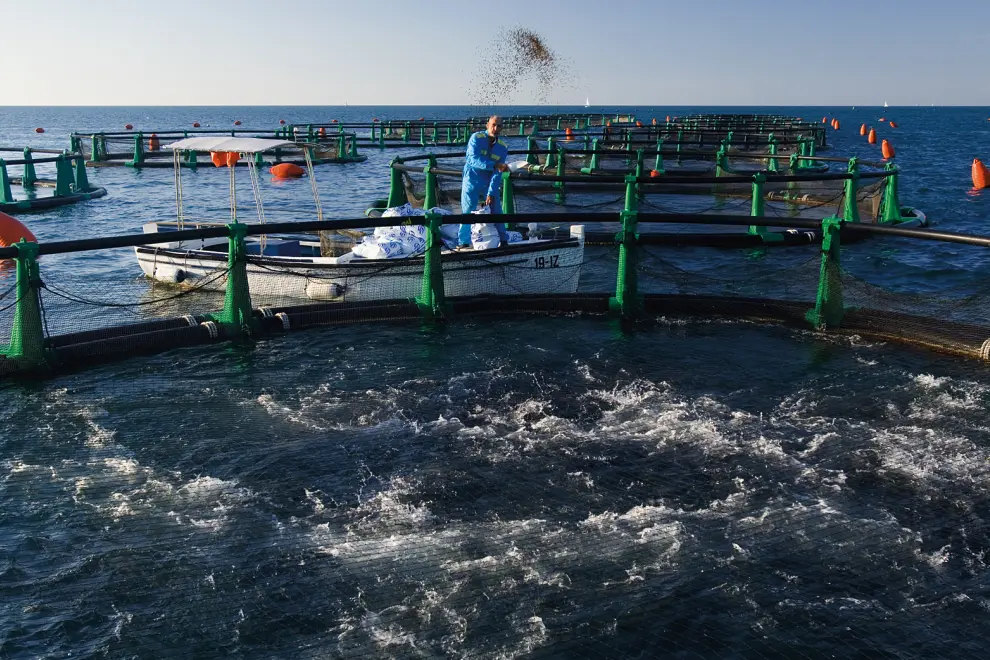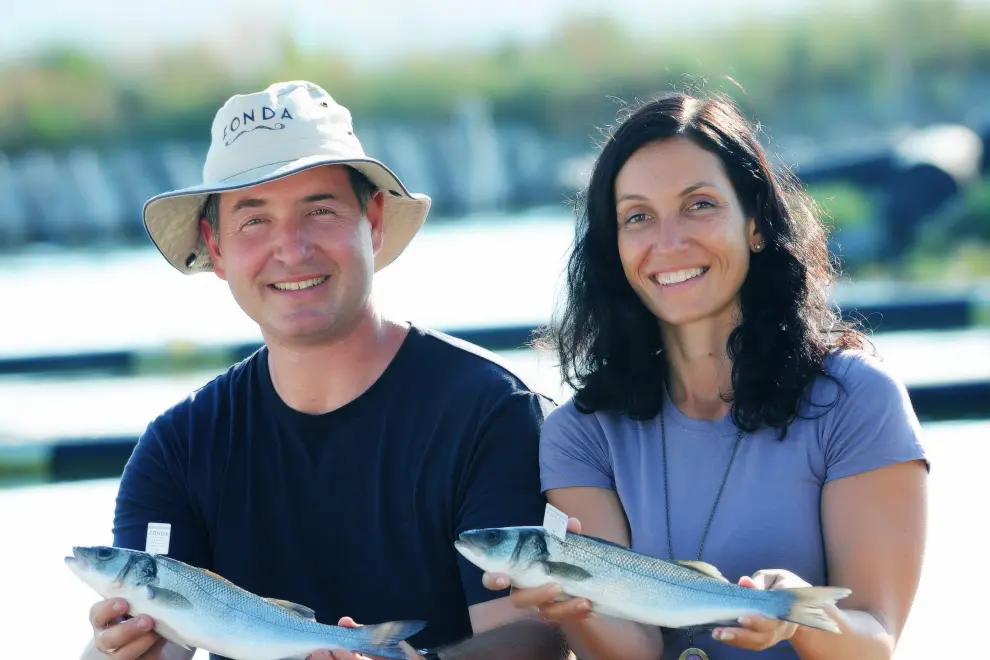Fonda making fish farming more sustainable
Located at the southernmost point of the Slovenian sea, the Fonda fish farm has been producing sea bass and other fish for the past 20 years. Having capitalised on relatively deep sea levels and strong currents there, the family-run company is focused on high-quality fish farming as opposed to mass breeding.
The company's beginnings date back more than 50 years, when biologist Ugo Fonda began to build on his interests in the marine world, scuba diving and underwater work under extreme conditions. He founded an underwater activities company specialising in construction work and harbour maintenance, as well as marine sampling and observation.
An internationally renowned expert in marine biology with extensive experience from the Mediterranean and Atlantic, Fonda was considered one of the top experts on the Slovenian sea.
Further pursuing his interests, he embarked on the fish farm project together with his family in 2003. The primary aim was to come up with something new: they did not want mass production, their goal was to deliver high quality.
The Fonda fish farm. Photo: Arne Hodalič
The Fondas are a family of biologists and sea lovers, and so it was natural for them to combine their knowledge and respect for nature with what might be called boutique fish farming.
Their efforts netted the Piran sea bass, which is nowadays known as the quintessential Slovenian fish. The Fonda company was the first to use the Slovenian word for sea bass as a registered trademark, according to molecular biologist Irena Fonda, Ugo Fonda's daughter, who took over as head of the company after her father's death in 2011.
The sole marine fish farm in the country also breeds the gilt-head bream and mussels. Fish traceability is ensured by tagging them with the date of capture as soon as they are taken out of the sea.
In order to breed fish of the highest quality farms must start by recreating natural conditions as much as possible, and the breeding itself takes much longer than people assume, which also means more expensive high-quality feed.
"Many think that it takes a few months, but we're in fact talking about at least four to five years. I must say we did not even imagine what all this will entail," said Irena Fonda, who steers the fish farm along with her brother, the biologist Lean Fonda, head of fish farming and underwater operations.
Lean and Irena Fonda hold the sea bass grown at their farm. Photo: Mateja Jordović Potočnik
In 2016, Vale Ca' Zuliani entered the company as a strategic owner. The Italian company is a family-run business itself operating several fish farms in Italy. Even though the takeover came with a few adjustments, the Fonda family is happy that Vale Ca' Zuliani understands their special way of fish farming.
"Some projects we could not have done without them, plus working under their auspices gives us more time to do our core business of looking after the fish," Irena Fonda explained.
Their fish are supplied to certain retailers and directly to restaurants, but they also offer online purchases and pick-ups or deliveries straight to customers' homes.
"At first we exported almost everything to Italy, but then we deliberately focused on increasing sales at home." The Covid pandemic turned this trend around, but the company is now again on track to supply the domestic market as much as possible. The northernmost fish farm in the Adriatic also supplies schools, an area of cooperation they wish to expand in the future.
 A guided tour of the Fonda fish farm. Photo: Arne Hodalič
A guided tour of the Fonda fish farm. Photo: Arne Hodalič
They have also branched out into environmental protection and educational tourism, having co-founded a non-profit dedicated to marine biodiversity conservation and providing guided tours of the fish farm, which have so far been attended by people from 131 countries.
Same as many other companies, Fonda has to deal with labour and skills shortages. "Not everyone can do this kind of work, of course, so it has been clear to us for some time now that we need to train our workers ourselves," Irena Fonda said. The company currently employs 11 full-time staff, nearly half the number a decade ago, plus a few seasonal workers.




